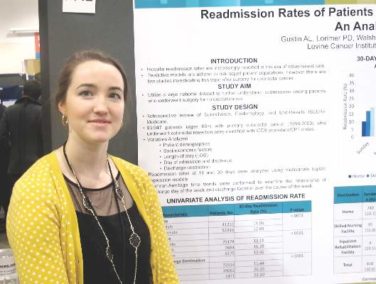During an adolescent visit, we all can agree that getting answers to even the simplest of questions can be a day’s work. Despite the reason for the visit, it always is important to ask a few basic questions in hopes that it might unveil a less obvious condition, or one that potentially could cause harm later. Asking the right questions is as important as getting the right answer to make a correct diagnosis. Questions that are too general usually yield zero information for diagnostic purposes. Adolescents are concrete thinkers; therefore, if we don’t ask the question in several different ways, we are likely not to get the right answers, or any at all.
Two questions that I feel must be asked at every female-patient visit are, “When was your last period?” and “How often does your period come?” Answers to these two questions can assist in diagnosing several medical conditions that otherwise might have gone unnoticed.
Amenorrhea, or absence of menses, is established if a female has never had a period by age 15 years (primary) or has gone 6 months or greater without one (secondary). Primary amenorrhea is generally caused by genetic or anatomic abnormalities, and commonly is identified at an earlier age. But if the presentation of the genetic disorder is not classic, such as in Turner’s syndrome, it may go unnoticed and the first clue may be amenorrhea.
Pregnancy is an obvious consideration with amenorrhea. But the picture is a little less clear when light or irregular periods are present. Postmenarche menstrual cycles are commonly irregular and not without risk of pregnancy if the adolescent becomes sexually active. Also, a patient with an ectopic pregnancy tends to have oligomenorrhea before the amenorrhea. Therefore, regardless of age, if the periods are abnormal, a pregnancy test should be done.
Early polycystic ovarian syndrome (PCOS) also can present as irregular/ infrequent periods. Many of the common signs such as hirsutism or acne may be minor and not convincing. In an age where obesity is so common, a clear picture is less likely, so PCOS may not be considered. PCOS is the No. 1 cause of infertility in women, and if suspected should be worked up.
Anovulation or dysfunctional ovaries, as seen in PCOS, may not be obvious early on. As stated, oligomenorrhea is very common in the first few years following menarche, but persistent oligomenorrhea is not normal. General guidelines state that oligomenorrhea post menarche is likely to be a sign of anovulation if 1 year post menarche, less than four menstrual cycles; 2 years post menarche, less than six menstrual cycles; 3-5 years post menarche, less than eight menstrual cycles; and greater than 5 years post menarche, less than nine menstrual cycles. Heavy bleeding occurring less than every 21 days is also a sign.
Thyroid dysfunction is a common consideration when the menstrual cycle is abnormal, and we normally attribute heavy periods to hypothyroidism and amenorrhea or irregular periods to hyperthyroidism. The truth is thyroid dysfunction – regardless of whether the hormone is high or low – can present in either fashion. Other endocrine disorders – such as adrenal hyperplasia, prolactinomas, or metabolic syndromes – also disrupt the menstrual cycle, but initial presentations can be vague and only the prudent investigator will identify the disorder.
If the patient appears underweight, careful evaluation for anorexia should be done. Irregular periods present with caloric deprivation. Questions should be asked about body image to determine if this is a concern.
Once it is established that there is a menstrual dysfunction, a careful physical exam should follow. Screening labs and a pelvic ultrasound will help identify the dysfunction, but a referral to an endocrinologist still should follow if the results are equivocal or unclear.
As demonstrated, those two simple questions have the potential to unveil so many disorders that likely would go unnoticed for months to years. Every encounter is an opportunity to obtain information regardless of the chief complaint. Posing questions in several different ways lessens the likelihood that the question will be misunderstood and compensates for varied levels of intellect.
Remember, you have to ask the right question to get the right answer!
Dr. Pearce is a pediatrician in Frankfort, Ill. E-mail her at pdnews@frontlinemedcom.com .




